If a wedding is a party, then an African wedding is surely a grand one! Coming in various ethnicities, cultures, shapes and sizes, they are filled with vibrant entertainment, and place a lot of importance on cultural traditions, exquisite cuisine and beautiful decorations and several shenanigans.
Africa is mystic; it is wild; it is a sweltering inferno; it is a photographer’s paradise which makes it a couple’s utopia to tie the knot. Africa is beautiful and each one of the 54 countries is unique in its own way and each destination has unique sceneries, locations, cultural celebrations etc depending on the season you go there.
African weddings are often grand celebrations and involve combining two lives, two families, and sometimes even two communities!
We reached out to experts from this amazing continent who know what exactly African weddings are all about. From knowing the traditions to finding the best places and when to get married here, here is the complete guide for you to an African wedding straight from the experts! Read on below as it will provide you with all the essential information you need to ensure your African wedding is a success.
Things You Need To Take Care Of When It Comes To African Weddings
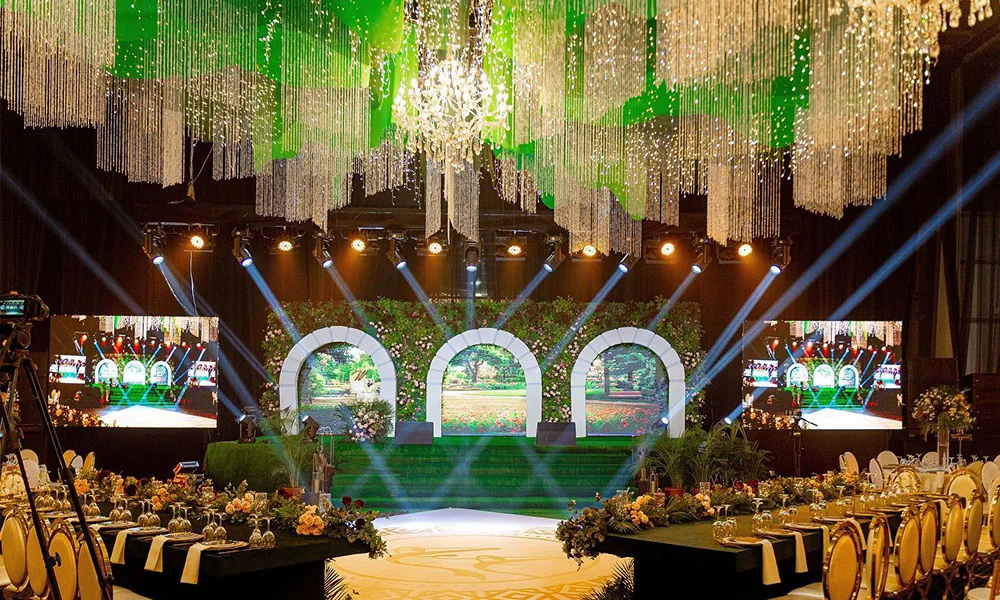
Food – “There is no overstating the quantity of food when it comes to African weddings.” Tells Adeola Okeshola, CEO, 2706 Events, Nigeria.
“The timeline, it is important that we know what is happening when to make sure the day can run smoothly.” Tells Cara Lee Pearce, Owner, The Mosaic Wedding Company, South Africa.
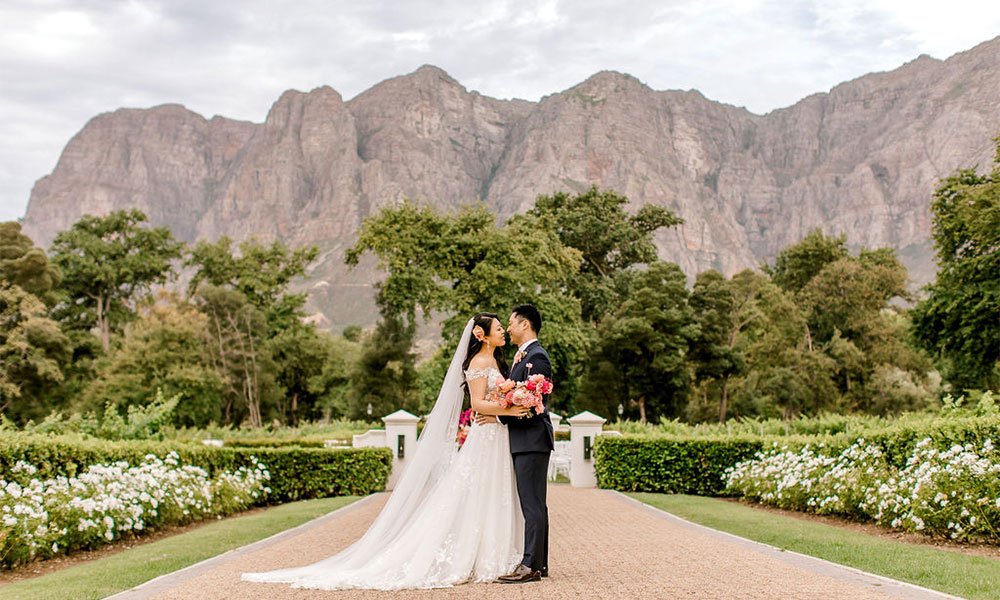
“African weddings are very ceremonial. For families, it is a significant opportunity to showcase how culturally ingrained they are. Food is one very critical element in African marriages. A robust menu of ethnic delicacies is what excites your guests. Usually, there are delicacies that are generally acceptable by a wide range of African Countries and tribes. A critical example is the “mighty” Jollof rice. you can never go wrong with African Jollof.” Adds Debola Lewis, CEO, Yvent Kouture, Nigeria.
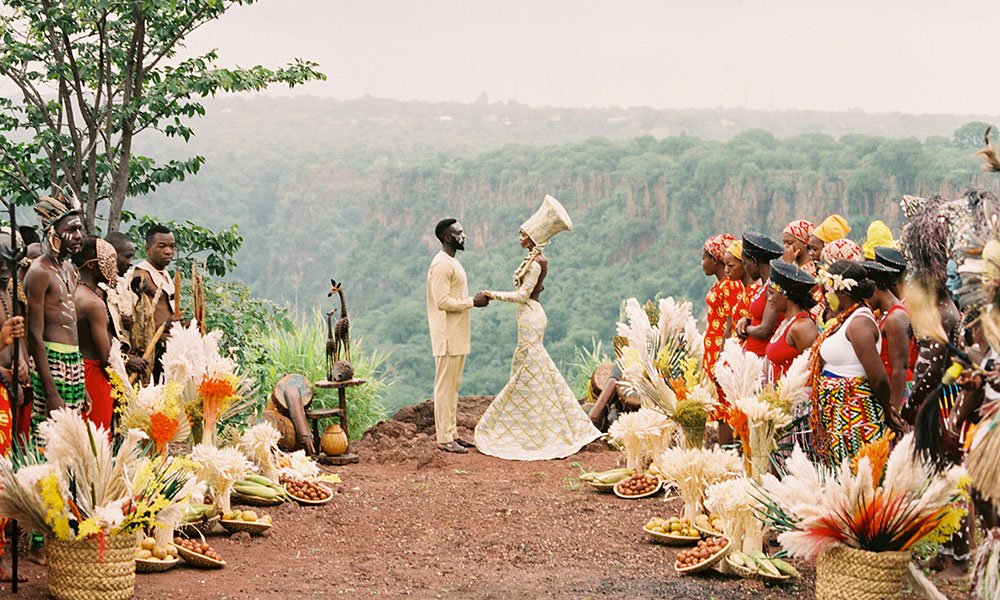
Similar sentiments were shared by Ifeoma Stella Okoye, Creative Director of STM Magical Creations from Nigeria. “Food must be on point. It’s also important that the marriage customs & tradition peculiar to the couple is taken care of.”
“If you are having a destination wedding in Africa you need to make sure you have a planner or team that is based in that country so that you can understand the traditions, policies and also any special permits which will be needed for the wedding to take place, the language barrier can be an issue so having someone who understands the local language is a bonus.” Says Mwai Yeboah, Founder, Exalt Africa, Zambia/UK.
Traditions/Customs That Are Important To The Couple & Families
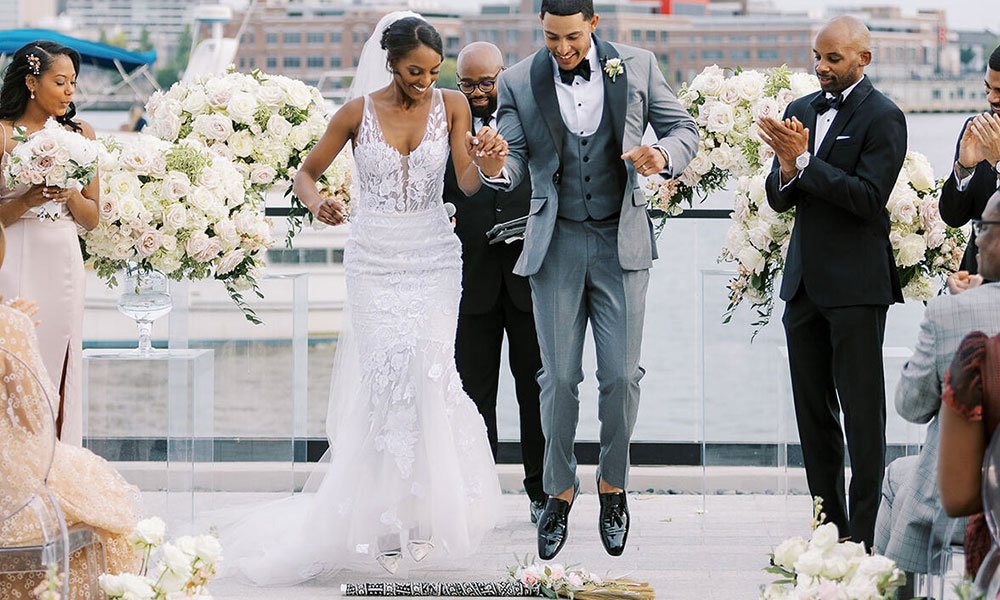
African weddings are diverse depending on which region but they all have one thing in common, family is everything that makes African weddings generally big, from engagement to the day of the wedding you expect some family involvement. Traditions and customs may vary from culture to culture and from country to country, but there are some commonalities throughout the continent.
Kate Hassan, CEO, of Thea Eventistics from Ghana tells 5 things that are of utmost importance. Consent, bride price or dowry, traditional wedding attire, cultural rituals and respect for elders.
The 2 outings of the bride: the 1st outing in the traditional outfit of her family and the 2nd outing in the traditional outfit of her husband since she now belongs to the family of the man who married her. Adds Mogoulah Alphonsine, Event designer from Lamer Event Decoration & Design, Gabon
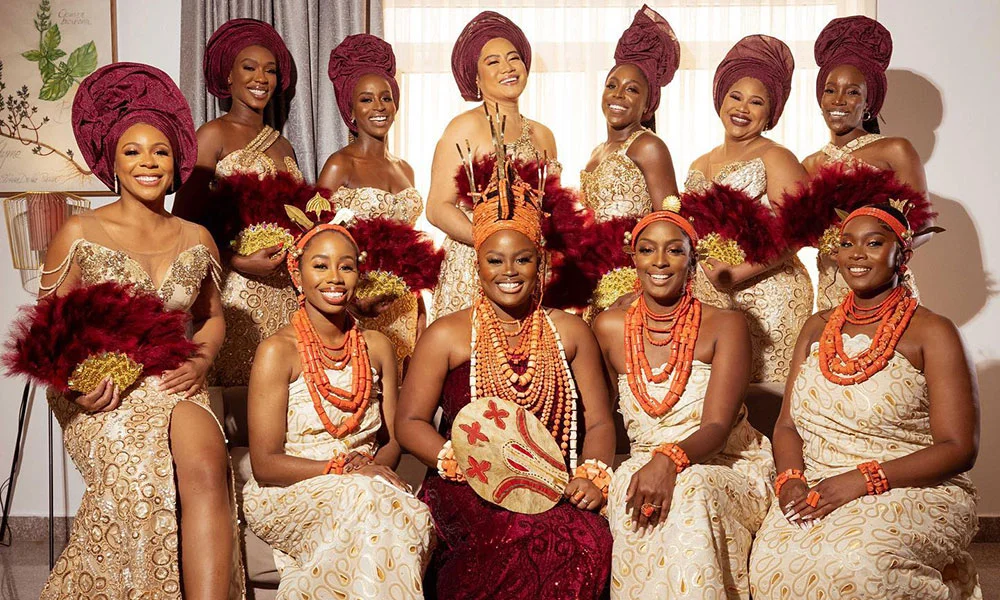
Chisala Simachembele, CEO of Creations Pinnacle from Zambia lists the following traditions:
“Busonge– groom and his family approach the bride’s family to ask for the bride’s hand in marriage
Kusonga- (official engagement) where families meet to negotiate the bride price, this can take days
Chisekelabusonge– bride’s family prepares a small meal to acknowledge the couple’s engagement
Chilanga Mulilo– this is a big celebration and colorful celebration where the bride’s family prepares different types of dishes to show the groom and his family the types of food he may find on any given day should he visit his in-laws or family member, some food is raw, preserved, fermented alcoholic beverages, wild fruits, livestock, mostly traditional cuisine.
Kuchesha– The bride is prepared for marriage by older women of the family, only the groom’s sisters are invited to this ceremony
Mashikulo– Post-wedding day the two families come together in a smaller ceremony to introduce each other and give the couple advice and blessings.”
Another important one is jumping the broom. The act symbolizes a new beginning and a sweeping away of the past, and can also signify the joining of two families or offer a respectful nod to family ancestors.
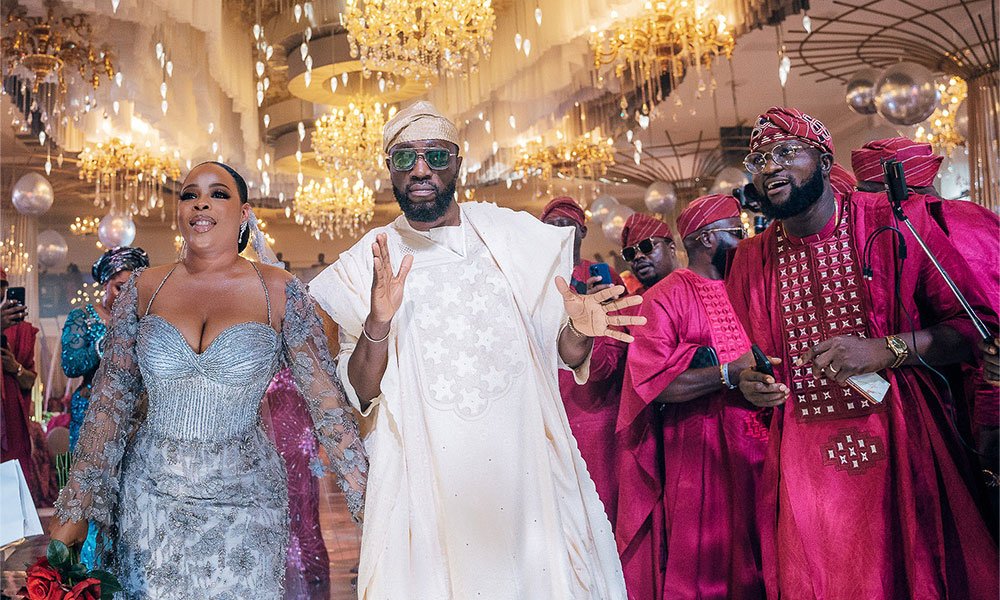
Bisola Borha, Founder & Creative Director of Trendy Bee Elite Events & DWP Powerlister from Nigeria sheds light on traditional aspects of an African wedding:
“Multiple ceremonies are very common in Africa, which showcases the rich culture. In most African countries the first is the introduction ceremony introducing both families & culture, the second a traditional wedding ceremony contains all the cultural elements from both families, The third is typically a religious ceremony. These events typically happen on separate days but recently some families have decided to have all ceremonies on one day. In an African country like Morocco, marriage happens before the celebration. It’s a small ceremony called the Drib Sdak, wherein the groom and bride will sign a marriage contract in the presence of witnesses, typically their family members, and an Adoul, a Moroccan notary. The festive and colorful three-day affair is actually the wedding celebration, which is similar to a reception in other cultures.
Family spokesperson / Emcee- Depending on the tribe or culture of the couple, an Alaga or family spokesman representing the family is used, their job is to direct the traditional marriage rites in an interactive and fun way showcasing the cultural values that must be enforced they are usually a pure delight to watch. During this period is were the groom and his friends are asked to demonstrate their love by doing different fun things at the ceremony in Nigeria from prostrating to carrying the bride to spraying the bride etc
Tossing salt– As the bride and groom make the great entrance, the guests toss salt on them to keep off the evil eye.
Spraying- Even though some African cultures have tried to abolish this because they term it as an abuse of money, spraying of money is a tradition that has existed for years and showcases riches & wealth in the land. It shows that the groom is ready to take care of the bride when they show wealth by spraying heavily at the wedding. Money spent is usually nice minted money being showered heavily on the bride and members of the family, the bride and her family may choose to retaliate but primarily the groom’s Family is expected to.”
These are some of the many more customs and traditions present in African weddings, in terms of size. There’s no standard way to celebrate an African wedding. While some are very elaborate and filled with cultural-themed wedding decorations and esthetics others can be simple and involve only a small gathering. However, regardless of how different weddings are held, the common huge factor is that marriage remains a huge part of the African culture and an opportunity for families to gather and celebrate.”
What Makes Or Breaks An African Wedding?

There’s a quote that says, “ You cannot leave Africa, it’s always with you, there inside your head.” I would expand that quote to say it’s always there inside of your heart, too. One cannot be born there—or even visit there—without being shaped and colored by its beat. The heart of African weddings is that the African beat echoes throughout the images of the wedding. As you take them in, it’s almost as if Africa is taking you in and you’re truly there. Beautifully shares Mwai Yeboah, Founder, Exalt Africa, Zambia/UK.
Food and entertainment- “African music, food, drinks, and the African rites for the family members being respected and interpreted right. All these if coordinated properly make an African wedding if not coordinated well will break the wedding.” Highlights Bisola Borha, Founder & Creative Director of Trendy Bee Elite Events & DWP Powerlister from Nigeria.
Top Luxury Wedding Venues In Africa
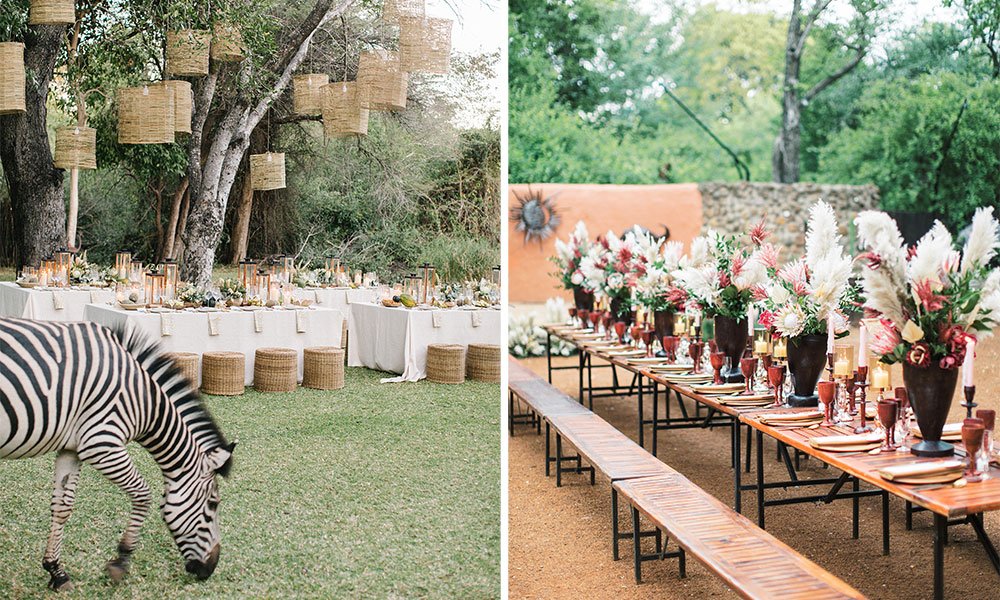
Imagine zebras grazing through your reception as you marvel at Victoria Falls. Picture yourself in South African wine country, exchanging vows between the grapevines. Daydream of a beach wedding day on Seychelles’ white sand beaches & pristine teal waters. Africa is a vast continent consisting of tropical rainforests, white sand beaches, far-reaching deserts, rugged coastlines, snow-capped mountains and of course, savannahs filled with the world’s most treasured wildlife.
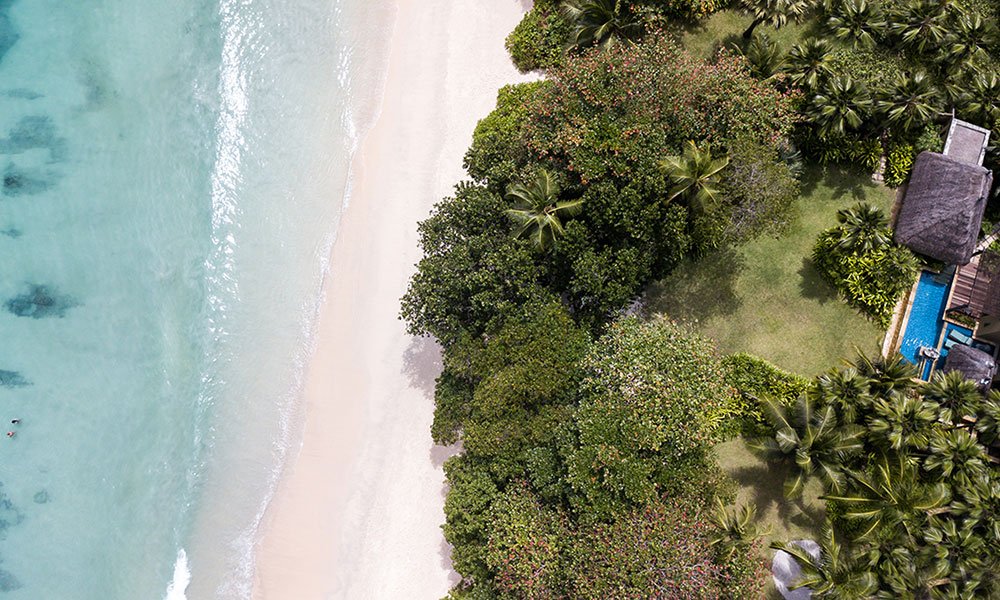
Experts collectively list these venues as the topmost to get married in Africa:
Nigeria- The Monarch Event Center Lagos Nigeria, The Five Palm Lagos, Nigeria, Ibom Resort Akwa Ibom, Nigeria
Egypt- Four Seasons Resort Mauritius at Anahita * El Gouna, Egypt
Nambia- andBeyond Sossusvlei Desert Lodge
Zanzibar- The Palms, Zanzibar & Melia Zanzibar.
Mauritius- Maradiva Resort, Four Seasons Hotel Anahita, Mauritius
South Africa- The Oyster Box, South Africa, KwaZulu-Natal & Cavalli Estate, Cape Town, Mont Rochelle, Molenvliet, Vrede en Lust, Boschendal Wine Estate, Leeu Estates, Grand Dedale
Tanzania- Singita Sasakwa Lodge, Tanzania
Morocco- La Mamounia Marrakech, Morocco, Palais Namaskar Marrakech
Kenya- Windsor Golf Hotel and Country Club Nairobi, Kenya
Botswana- Chobe Marina
Ghana- The Underbridge Accra Ghana, Kempinski Hotel, Safari Valley Resort Ghana
Zimbabwe- Victoria Falls Hotel, Zimbabwe
Zambia- Royal Livingstone by Anantara, Tongabezi Lodge in Zambia
Seychelles- Anantara Maia Seychelles Villas in The Seychelles Islands
Mozambique- Anantara Bazaruto Island Resort
Best Time To Get Married In Africa
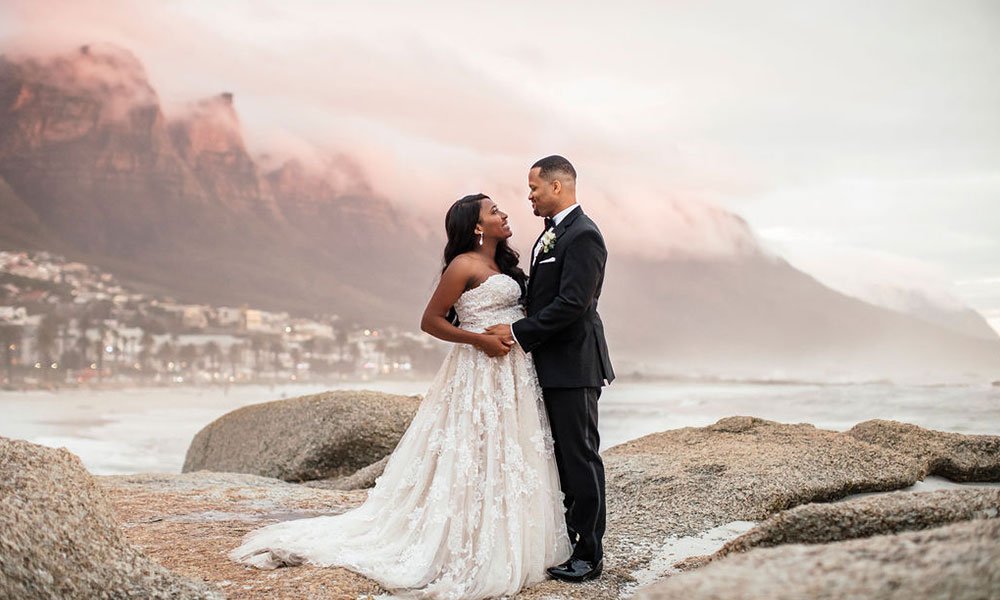
Do you like romance, nature and dreaming of new landscapes? Africa is one of the best destinations for lovers looking to tie the knot. A gem of a continent, with stunning weather, brimming with cultures, history and beautiful wedding locations offering memories to last a lifetime.
Most countries in Africa experience rainy and warm summers and fine and dry winters. Bad weather will therefore not spoil customary weddings, some of which take place outdoors, as well as celebrations outside town halls. In summer, the possibilities are endless for weddings in the middle of nature or by the beach. The best times are from November to April, because of the easy weather and also the influx of travelers who come to enjoy end-of-the-year festivities. You would enjoy the outdoors, the weather is lovely with no rain, it gets a little hot in October but you still get to enjoy long summer nights with clear African skies. If you would like more time for your venue set up preferably book your date during an off-pick season.
Advice For Couples Planning Their African Wedding
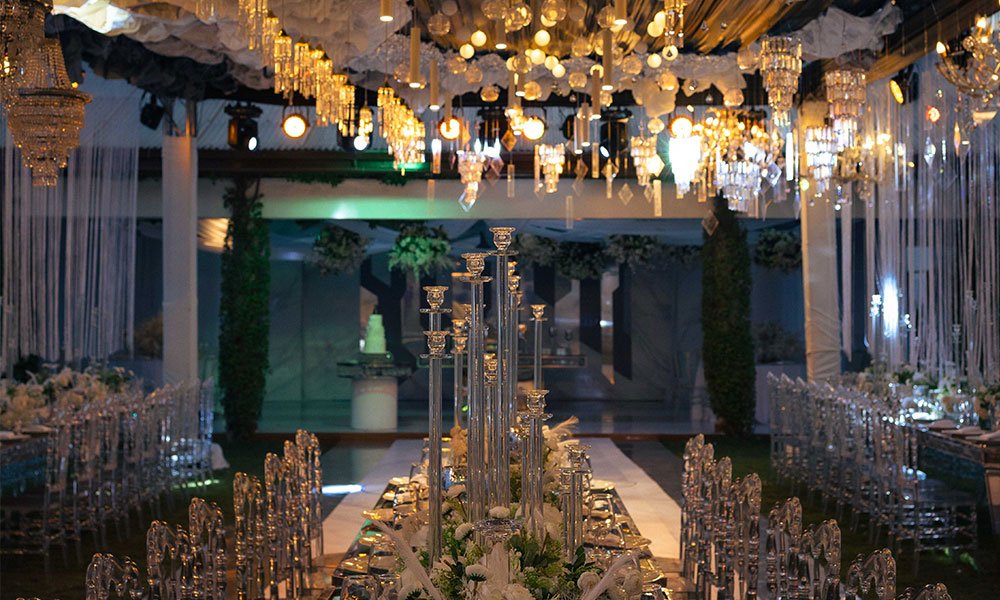
“It sounds very cliche, but enjoy it. Take in every moment, savor everything. The day goes by very quickly. Trust the suppliers you have hired to make sure your day goes off without a hitch, let them do their jobs, while you have the best day with those you love.” Tells Cara Lee Pearce, Owner, The Mosaic Wedding Company, South Africa.
“Luxury in African culture means not that we tone down our vibrant colors and practices, but that our colorful cultures, traditions, and bright colors are weaved into every aspect of design and production in a way that highlights its extravagance. As Coco Chanel said, “Luxury lies not in the richness of things but in the absence of vulgarity.” Embrace the culture and be open to using the resources that are unique to that country or destination rather than shipping things in, luxury in Africa is weaved in a different way and this can be beautiful.” Shares Mwai Yeboah, Founder, Exalt Africa, Zambia/UK.
Hire a wedding planner: They must contact a wedding planner who has proven experience in the African country they will choose to celebrate their African Wedding. Says Adeola.
Clear communication all around on what the expectations should be ( a very informative detailed invitation card is a great way to start ) and patience with the parents. Advices Bisola.
Set a budget and consider family dynamics- Weddings can be quite dramatic, especially the wedding planning process. I would advise couples to first critically agree on what works for both of them. Also be considerate of family dynamics, as this sometimes creates tension in the planning process. Try to create a budget and stay within the budget.
Celebrate big- Infuse & Celebrate your culture, no matter how contemporary or if civil or traditional wedding.
So that’s all about African weddings! If you are looking to find the right planner, venue, or any other wedding suppliers to make your dream wedding true in this continent, head on to DWP Insider website now!


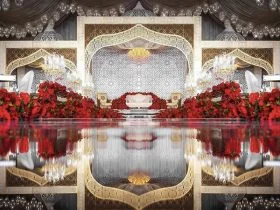

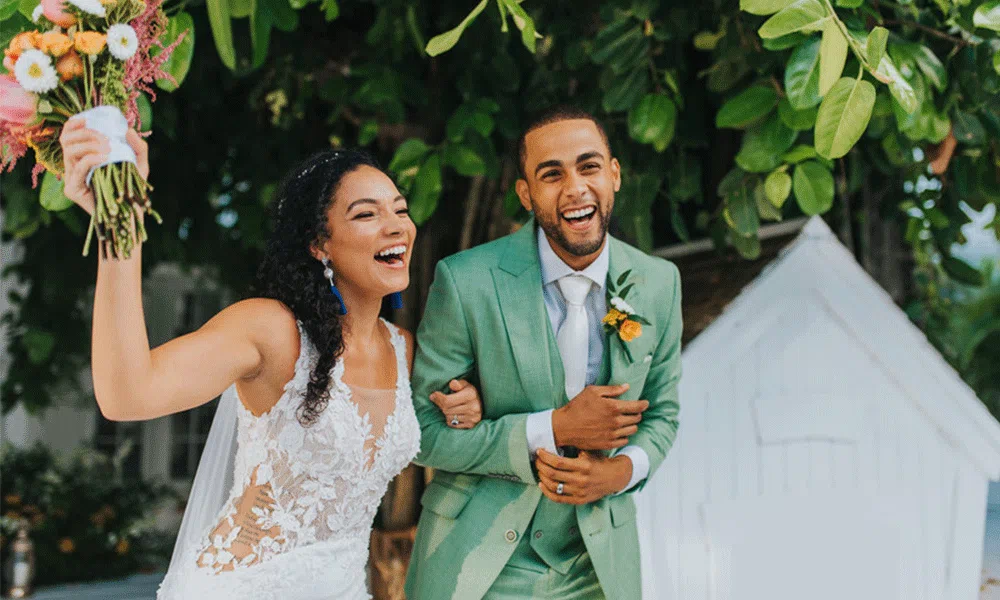



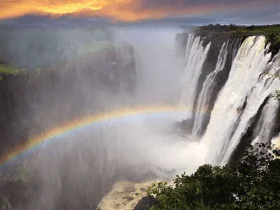

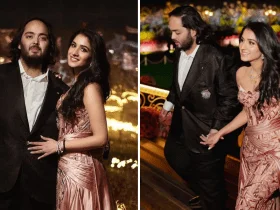
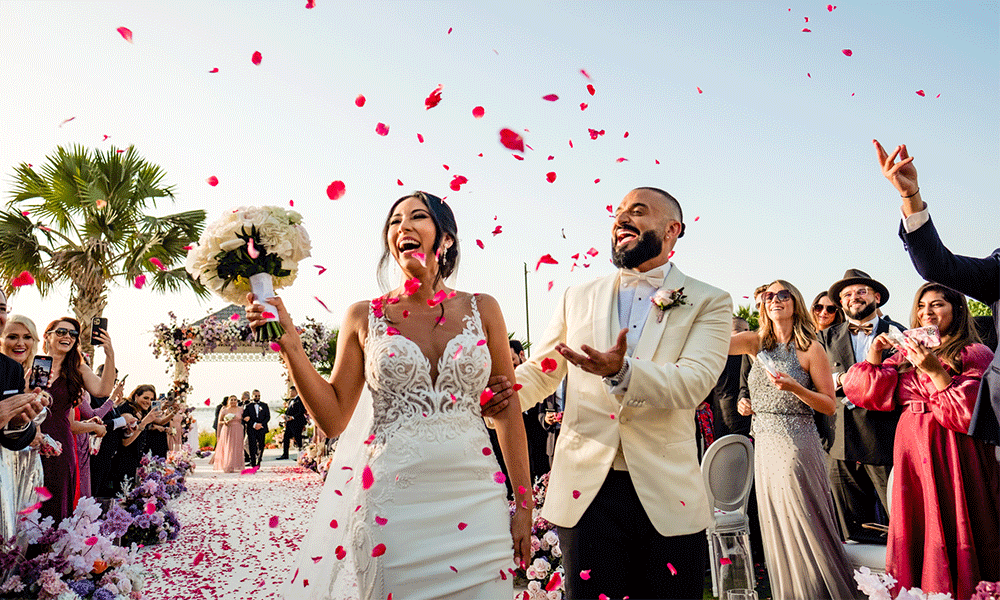
Leave a Reply